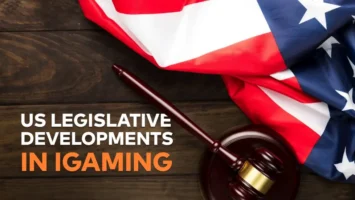Thailand casino legislation halt unsettles gaming industry

The dramatic story of the Thailand casino legislation halt marks a pivotal moment in Southeast Asia’s iGaming landscape. In a region often viewed as ripe for large-scale integrated resorts, Thailand’s attempt to legalize casinos seemed, for a time, like the next big leap. However, as recent political upheaval and grassroots opposition have brought the process to a standstill, industry analysts and stakeholders are left to reflect on deeper questions about regulation, social readiness, and the volatile environment for foreign investment in emerging gaming markets.
Political turbulence undermines casino ambitions
The immediate trigger for the casino bill’s withdrawal was a wave of political instability, triggered by Prime Minister Paetongtarn Shinawatra’s suspension in early July over alleged ethics violations. The controversy centered around a leaked conversation with Cambodian political figure Hun Sen, which many Thais viewed as undermining national interests during a sensitive border incident. Public outrage was swift and widespread, with thousands protesting and demanding the Premier’s resignation. This turmoil pushed the government’s ruling coalition into disarray, as the Bhumjaithai Party exited and left the main Pheu Thai Party with a slim, fragile majority. As a result, the Entertainment Complex Bill, was promptly shelved from the parliamentary agenda.
The bill’s big promise and the forces of resistance
For the global gaming industry, the halt is more than a political footnote, it is a missed chance in a country long coveted by international casino operators. The scrapped legislation proposed up to five integrated resorts with gaming elements, targeting economic revival through tourism, job creation, and foreign investment. The likes of Galaxy Entertainment, Melco Resorts, MGM Resorts, and Las Vegas Sands had all expressed keen interest. Thailand’s world-renowned tourist destinations such as Phuket, Chiang Mai, Bangkok, and Chonburi were eyed as potential sites for world-class entertainment complexes.
Yet, opposition to legal gambling in Thailand has always run deep. Critics, including a coalition of civic groups, raised concerns about the risks of vice, gambling addiction, crime, and money laundering. In June, these groups delivered a petition with almost 54,000 signatures demanding a referendum, highlighting the extent of public anxiety. Policymakers also faced practical questions about land use (notably at controversial sites such as Klong Toey Port), regulatory transparency, and whether revenue from casinos was overestimated in the broader fiscal model.
Uncertainty for operators and investors
The allure of the Thai market is undeniable, given its established reputation as a travel destination. The government’s withdrawal of the casino legislation, though officially presented as a pause for further public dialogue, signals caution to potential investors. Observers point to the recent reversal on cannabis legalization as a cautionary tale of regulatory volatility. As gaming consultant Brendan Bussmann notes, stability and regulatory predictability are prerequisites for the kind of capital investment required to build integrated resorts rivaling those of Macau or Singapore. Without them, any billion-dollar development risks turning into a stranded asset.
“Gaming is about stability,” he said, reflecting on the recent cannabis u-turn, “If you want good, big, beautiful resorts that add billions of dollars to your economy, you have to think of long-term investment. You can’t keep changing the rules.”
What’s next for legalization and market entry?
While the immediate future for legal casinos in Thailand looks bleak, the larger forces that made the bill attractive will not simply disappear. Thailand’s tourism sector will continue to recover post-pandemic, and policymakers may eventually seek new engines of economic growth. International operators remain interested, monitoring the political climate and hoping for renewed efforts with greater community buy-in and regulatory preparation.
For now, lawmakers emphasize that they need more time to address concerns and communicate with the public. The government still faces broader challenges, from passing key budget legislation to stabilizing its fragile parliamentary coalition. Some observers believe more study is required before any form of gaming can move forward, particularly around transparency, site selection, and the role of casino income in the wider redevelopment model.
Lessons for the industry and the region
The suspension of the Thai casino bill is not just a temporary setback. It underscores the crucial lesson that market entry in emerging jurisdictions must be grounded in clear regulatory frameworks, predictable governance, and broad societal consensus. Thailand’s case highlights that, no matter how attractive a market may appear, success in the iGaming sector is never divorced from cultural sensitivity and political realities.
For other countries in the region contemplating similar expansions, some clear takeaways emerge – prioritize transparency in policymaking, ensure robust social safeguards to address problem gambling, and maintain stability in investment climates. These are the building blocks required to convince both the public and global investors that gaming can be introduced for net positive economic and social gains.
The bottom line
“Is this the end of the Thailand casino try?” As the question lingers, the answer—at least in the short term, appears to be yes. But history in this arena shows that controversial policies can always return under new leadership or shifting national priorities. For now, the Thailand casino legislation halt serves as a stark reminder of how intertwined regulation, public sentiment, and political stability are in shaping the future of iGaming, not just in Thailand but throughout Asia.




















